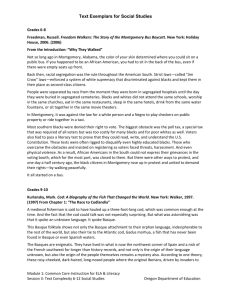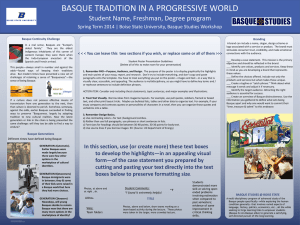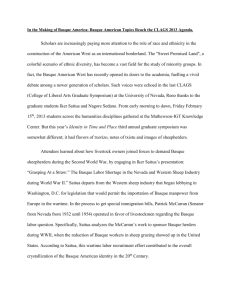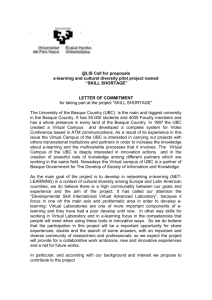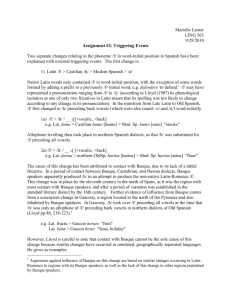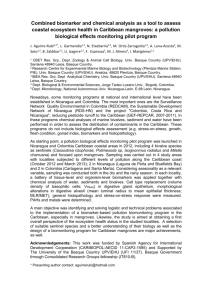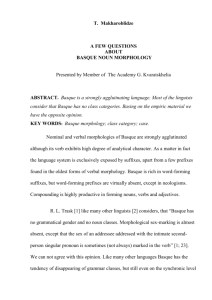AUTEUR CINEMA AND PERIPHERAL IDENTITIES Julio Medem (1998) (1993)
advertisement
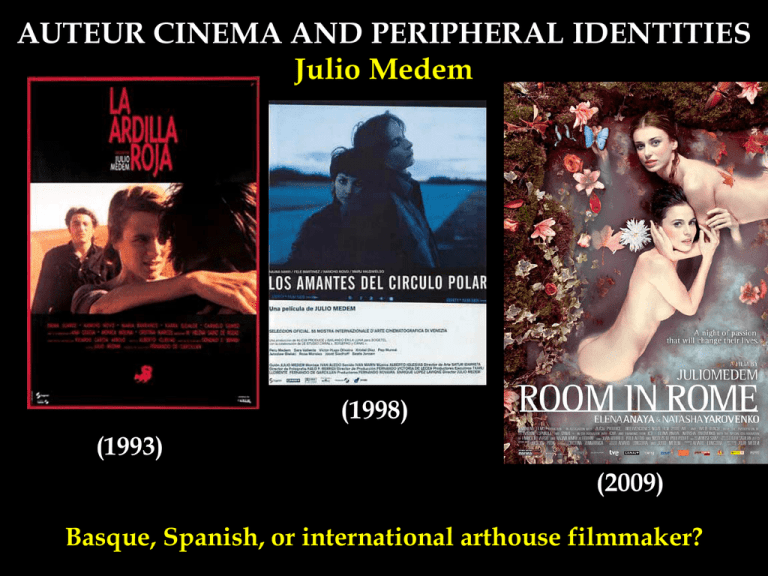
AUTEUR CINEMA AND PERIPHERAL IDENTITIES Julio Medem (1998) (1993) (2009) Basque, Spanish, or international arthouse filmmaker? Technical innovator: Lucía y el sexo (2001), first feature film in Spain shot entirely in HD Archetypes: women as a force associated with essential elements: earth, water, sky. Split selves: - Caótica Ana: poetic narrative about a woman with multiple past lives - Tierra (1996): a man and his double in the plains of central Spain Cyclical narratives connected by repetition and chance: -Los amantes del círculo polar/Vacas Sexuality and oedipal trauma: films that lend themselves to psychoanalytical readings Medem: a filmmaker with a background in psychiatric medicine How is Medem’s cinema ‘peripheral’ and ‘international’ at the same time? (2007) An elusive relationship with Basque identity An elusive relationship with Basque identity: Medem as an insider/outsider. “The conflict within a divided self, the duality that it engenders and its correlative symmetry, is an earnestly personal predicament for Medem” (Rob Stone, p. 14) A direct intervention in Basque politics: La pelota vasca: la piel contra la piedra (2003) Vacas, Medem’s debut film (1992): allegorical vision of Basque history •In its most extreme form, resistance & conflict have taken the form of political violence, represented by the terrorist actions of the separatist group ETA (1959-2011) Euskal Herria El País Vasco: a geo-political reality: a region with powers for self-administration and a distinctive language and culture and Rob Stone, p. 186. “a utopian, autonomous Basque nation that remains both a nationalist dream and a political aim: Euskal Herria, or the land of the Basque (euskera) speakers” Vacas, Medem’s debut film (1992): allegorical vision of Basque history connected to the land, to violent internal conflict (the axe), and to a masculinist culture based on the ‘ownership’ of women Vacas: tackling a Basque history connected to land through the masculine figure of the aizkolari, or woodcutter, and bound up with language: euskera. •“weakened nationalism”: distortion of identities – conflict resurfaces in gender and family relations • Setting: the campsite – a fake ‘natural’ environment • For Smith, the violence in the third act of the film reveals that in spite of the playful and dream-like tone of much of the film “terror is still lived as a trace in Basque bodies, albeit a trace that is subject to an ironic and sceptical reinterpretation” • High and excessively low angle shots convey the point of view of the invisible - but ubiquitous squirrels • Ironic reversals in gender • Parody of family dynamics and power relations (Paul Julian Smith, “Julio Medem’s La Ardilla Roja: a a transparent society” in his book Vision Machines) Actors and types Emma Suárez, the mysterious woman suffering from amnesia in La Ardilla Roja Carmelo Gómez as a disenchanted Basque terrorist in Días contados (Imanol Uribe, 1994) Exploring themes of violence and nation through the crime thriller/love story genre conventions Tierra Emma Suárez and Carmelo Gómez: acting in Vacas, La Ardilla Roja and Tierra

